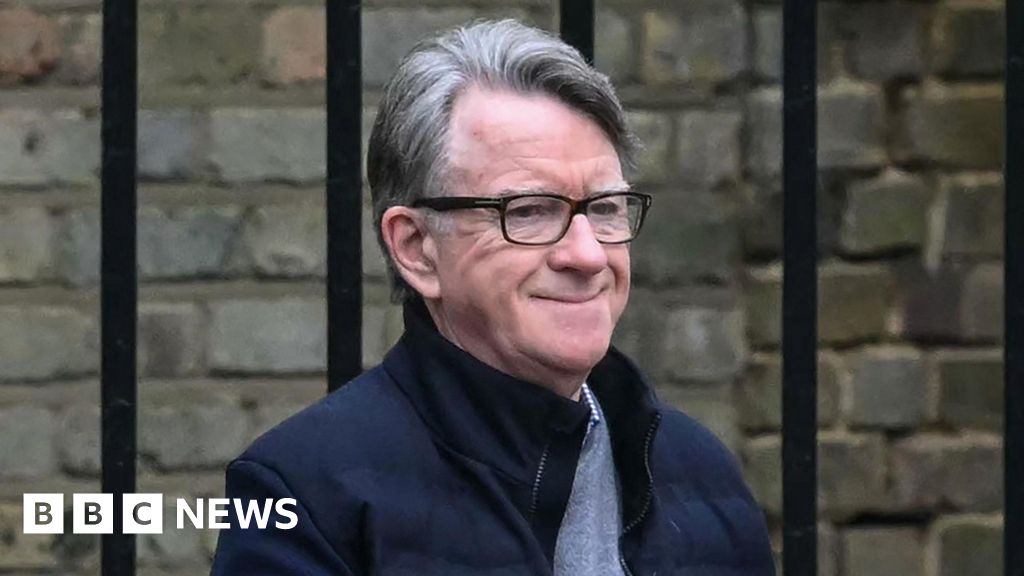Business
This doctor raised $130 million from Michael Dell, Jim Breyer and others to try to fix health care

Dr. Clay Johnston, co-founder and chief medical officer of Harbor Health.
Courtesy of Harbor Health
A version of this article first appeared in CNBC’s Inside Wealth newsletter with Robert Frank, a weekly guide to the high-net-worth investor and consumer. Sign up to receive future editions, straight to your inbox.
When tech founder Michael Dell and his wife Susan founded their namesake medical school at the University of Texas at Austin, their mission was to promote value-based health care, a model that rewards providers for better patient outcomes.
Dr. Clay Johnston, the first dean of Dell Medical School, later learned the hard part wasn’t improving treatment outcomes and at a lower cost, he told CNBC. The sticking point was getting insurance providers to pay for it, he said.
So in 2021, he left the medical school with Dell’s blessing to launch clinic startup Harbor Health. The company, based in Austin, Texas, is a “pay-vider” that offers its own insurance plans and owns and operates 43 primary care and specialty care clinics in four metro hubs in Texas.
Dell’s family office, DFO Management, has backed Harbor since its inception.
“Michael was excited about what we had built at the medical school, and he understood the limitations of that,” said Johnston, who serves as Harbor Health’s chief medical officer.
In September, Harbor raised $130 million from DFO alongside Jim Breyer’s namesake venture capital firm, family office Martin Ventures and others to expand its chain of primary care clinics in Texas and expand its insurance business. Harbor has raised $258 million since launching in 2022.
Owning clinics and the insurance company requires a massive war chest, but it’s necessary, said Johnston, a neurologist and epidemiologist.
“The reason we do that is so that we have full control of the dollars, so that we can take responsibility for people’s health and use those dollars for whatever makes sense for people to have better health outcomes,” he explained. “We can push technologies, and we don’t have to be focused on on visits.”
Johnston also knew Breyer and Charlie Martin, principal of Martin Ventures, from his work at Dell Medical School. Both have been backers since Harbor’s early days.
Martin, a serial CEO of hospital operators, backs firms focused on improving patient outcomes and healthcare costs. Breyer was drawn to the applications of artificial intelligence in healthcare at the medical school and at Harbor, Johnston said.
“He just brings people together, and he has wonderful insights, particularly about technology and how it’s going to evolve,” Johnston said of Breyer.
Harbor analyzes medical data to predict patient care costs and whether a patient is at high risk of developing a specific condition, requiring a surgery or needing hospitalization. This AI analysis enables Harbor to provide more care to patients before their condition worsens, according to Johnston.
While family office deal-making has declined markedly in 2025, healthcare is one of the few sectors still garnering interest. A recent family office survey by Goldman Sachs found that 28% of family offices planned to be overweight healthcare over the next 12 months and only 10% intended to be underweight, the best metrics of any sector other than technology.
Johnston said the capital-intensive nature of health care can be “hard to stomach” for some investors, but he said his experience with raising donations for the medical school bears many similarities to selling investors on the vision for Harbor Health.
“The people you’re selling to on the venture side are mostly looking at the financial likelihood of return. It’s nice to have an ambitious vision that’s potentially more disruptive and has the potential to to yield financial rewards, but it stops there,” he said. “The execution piece becomes more important.”
Business
Lawsuit over $21 million donor-advised fund highlights risks of DAF giving

Ridvan_celik | Istock | Getty Images
A version of this article first appeared in CNBC’s Inside Wealth newsletter with Robert Frank, a weekly guide to the high-net-worth investor and consumer. Sign up to receive future editions, straight to your inbox.
With donor-advised funds gaining popularity as a vehicle for the wealthy to give back, risks and potential conflicts of interests are emerging — and being put on display in a lawsuit over a family’s $21 million charitable fund.
Philip Peterson, a 63-year-old Kansas resident, filed suit in January alleging that the nonprofit that administers his family’s donor-advised fund has refused to communicate with him and has failed to make charitable grants that he has recommended since early 2024. The suit, filed in Colorado federal court, alleges the Christian nonprofit, called WaterStone, cut off his access to information about the account and that he doesn’t know how the fund has fared since the end of 2023, when it had $21 million in assets.
Counsel for WaterStone, founded as the Christian Community Foundation, said in a statement that the Colorado Springs nonprofit has respected the wishes of Peterson’s late father, who originally created the fund in 2005 and died in 2019.
The case sheds light on the growing uptake, and dangers, of donor-advised funds, or DAFs, which have quickly become one of the most dominant forces in philanthropy. Americans donated nearly $90 billion to DAFs in 2024, per the most recent annual report from the DAF Research Collaborative. According to the most recent data available, DAFs held $326 billion combined in assets in 2024.
For Americans looking to give back and save on taxes, DAFs are marketed as a flexible and simple way to do so, often described as charitable saving accounts or credit cards. Instead of writing a check to a nonprofit, donors contribute cash and other assets to a DAF. While the tax deduction is immediate, the funds can be allocated to charities later.
DAFs, unlike private foundations, are not required to distribute assets within a given timeframe, a common criticism among opponents who say DAFs are wealth hoarding vehicles.
The Peterson case offers a cautionary tale on the tradeoffs – especially when it comes to control. While donors are able to recommend how the funds are distributed to charity, the assets are legally controlled by the organizations that administer the DAF on their behalf. Though these organizations, also known as sponsors, typically respect their donors’ wishes, donors have little recourse if they do not.
“It’s sold to the public as, ‘This is your account, and you can decide where it goes, and you can move it, and you maintain full control.’ But if you don’t give up dominion and control, you don’t get the tax benefits,” said Ray Madoff, tax scholar and professor at Boston College Law School. “There’s a disconnect between the legal rules that govern it and the understanding of the parties. And this case is a perfect example of it.”
How much to give
Peterson told Inside Wealth that the rift with WaterStone started with a disagreement over how much to distribute.
In early 2024, Peterson alleges, WaterStone CEO Ken Harrison told him that the organization was going to keep the fund’s principal in perpetuity and only make grants from investment income. Peterson said he did not agree to the proposal as this would not allow the fund to make its customary annual grants of between $2.3 million and $2.5 million.
He further alleges that in March 2024, after he told Harrison over Zoom that he wanted to move the DAF to another sponsor, Harrison told him never to contact WaterStone again and abruptly ended the call.
Now Peterson is suing to assert his advisory privileges and regain access to the DAF, which was started by his late father, Gordon Peterson, a real estate investor and devout Christian, to support evangelical Christian causes. Peterson ultimately seeks the court to compel WaterStone to transfer the DAF to another organization so he can bring the fund’s giving back up to speed.
He said he requested WaterStone make a $1 million grant in 2024 but does not know if that grant – or if any grants – were issued that year. In 2025, WaterStone notified Peterson it would permit a $400,000 distribution from the fund, he said.
“I made a promise to my father. I promised him that if I was the remaining person on the account that I would direct the funds as I knew that he would 100% approve,” he said. “I want to be a man of my word.”
Philip Peterson, left, pictured with his father Gordon in 2015. Gordon Peterson passed away in 2019.
Courtesy of Philip Peterson
WaterStone declined to comment on specifics of Peterson’s allegations. The deadline for WaterStone to answer the complaint in court or move to dismiss it is mid-March.
“WaterStone has consistently carried out the articulated wishes of the donor since the donor advised fund in question was established,” WaterStone’s legal counsel said in a written statement, referring to Peterson’s father. “The plaintiff in this case is not the donor.”
Andrew Nussbaum, Peterson’s lawyer, said that WaterStone helped Gordon Peterson appoint his wife, Ruth, and son Philip as co-advisors to the DAF before he died. Ruth Peterson died in 2021, leaving Philip Peterson as the sole successor-advisor. Prior to 2024, WaterStone granted Philip Peterson’s grant requests, Nussbaum said.
Nussbaum said the lawsuit could set a chilling precedent if the court upholds WaterStone’s argument that designated successors do not have advisory privileges.
“If WaterStone is right, you’re talking about billions of dollars being beyond any kind of legal reach of the original donor-advisors or their successors to have any oversight related to the funds,” Nussbaum said.
Moreover, Peterson said he believes WaterStone has not honored his father’s wishes. He alleges that WaterStone has delayed or denied his grant recommendations even though they met the mission statement written by his father, which included a list of approved charities.
“I can tell you this: My dad would never have created a donor-advised fund if he knew that this was going to be the outcome. He felt very passionately about this,” he said.
DAF trade-offs
Law professor and DAF critic Roger Colinvaux said in his view, donors who want control of DAF assets are trying to have their cake and eat it too.
“Whether you like DAFs or not, the DAF sponsor is an independent charity. It’s an independent entity, and its duties are not to the donor,” said Colinvaux, professor at the Columbus School of Law at the Catholic University of America. “If the plaintiff wanted the sort of control that the plaintiff seems to want, as evidenced in the complaint, there’s a structure for that, and that’s a private foundation.”
Dana Brakman Reiser, professor at Brooklyn Law School, cautioned that Peterson’s story is a rare scenario. She said the biggest DAF sponsors like Fidelity Charitable and Schwab Charitable (now DAFgiving360) are affiliated with financial institutions and generally inclined to keep donors happy.
“It’s in their interest as long as honoring the donor’s request is not going to get the sponsor in trouble,” she said. Brakman Reiser added that the IRS prohibits using DAF assets to buy gala tickets or pay college tuition.
Still, the interests of sponsors and donor-advisors are rarely perfectly aligned.
Sponsors typically collect fees for managing DAF assets, creating an inherent financial incentive to disburse fewer assets, according to Chuck Collins, the director of the Program on Inequality and the Common Good at the Institute for Policy Studies, a progressive think tank. While community foundations pioneered the DAF model, they are now competing with larger commercially-affiliated sponsors for donors’ dollars, he added.
“More and more, they are having to compete with the commercial DAFs like Fidelity that have very low overhead and don’t take much in the way of fees. And so what’s the business model for a community foundation where, you know, 80% of the donations coming in are from people wanting to create DAFs?” he said. “In reality, their business model now depends on people parking their assets for longer periods of time.”
While Peterson’s case is unusual, it’s not the first legal challenge surrounding DAFs.
In 2018, a hedge fund couple sued Fidelity Charitable, contending the sponsor broke an agreement to liquidate their donated shares gradually and instead sold off 1.93 million shares, a position originally worth $100 million, in a matter of hours. Fidelity Charitable argued that it had followed the law and the case was ruled in their favor.
In another noteworthy debacle, in 2009, a Virginia-based charity called the National Heritage Foundation wiped out 9,000 DAFs worth $25 million combined to pay out creditors after it filed for bankruptcy.
Giving directly to charity doesn’t necessarily guarantee the assets will be used to the donor’s intent. But adding an intermediary into the equation adds another layer of complexity.
The handful of lawsuits filed by donor-advisors over how DAF assets are spent or invested have thus far been largely unsuccessful in court.
In short, according to Colinvaux, courts have upheld that donors have ceded any control in order to qualify for the tax break. If donors had the right to control assets — as opposed to the privilege to advise — they would not be able to claim a deduction, he said.
Nussbaum said Peterson’s case is different as it focuses on his rights to advise grants rather than control over how the assets are investments.
Peterson said he tried to resolve the dispute with Waterstone for about two years before going to court. While he knows his suit faces considerable odds, he said he felt he had no choice.
“People put an enormous amount of trust in these companies, and we’re hopefully going to find out what these companies can and can’t do,” he said. “It may have a big effect on the industry, and I don’t want to be that guy. All I want to do is to be able to continue my father’s legacy.”
Correction: This story has been updated to correct the IRS limitations on use of DAF assets.
Business
Mandelson referred to EU anti-fraud agency over Epstein emails

The European Commission says it is assessing whether the peer breached its code of conduct while its trade envoy.
Source link
Business
The NBA doesn’t just want to build a European basketball league — it wants to revolutionize the international pro game
-

 Tech7 days ago
Tech7 days agoA $10K Bounty Awaits Anyone Who Can Hack Ring Cameras to Stop Sharing Data With Amazon
-

 Fashion6 days ago
Fashion6 days agoICE cotton ticks higher on crude oil rally
-

 Business6 days ago
Business6 days agoUS Top Court Blocks Trump’s Tariff Orders: Does It Mean Zero Duties For Indian Goods?
-

 Business5 days ago
Business5 days agoEye-popping rise in one year: Betting on just gold and silver for long-term wealth creation? Think again! – The Times of India
-

 Tech1 week ago
Tech1 week agoDonald Trump Jr.’s Private DC Club Has Mysterious Ties to an Ex-Cop With a Controversial Past
-

 Entertainment5 days ago
Entertainment5 days agoViral monkey Punch makes IKEA toy global sensation: Here’s what it costs
-

 Sports6 days ago
Sports6 days agoBrett Favre blasts NFL for no longer appealing to ‘true’ fans: ‘There’s been a slight shift’
-

 Entertainment6 days ago
Entertainment6 days agoThe White Lotus” creator Mike White reflects on his time on “Survivor











